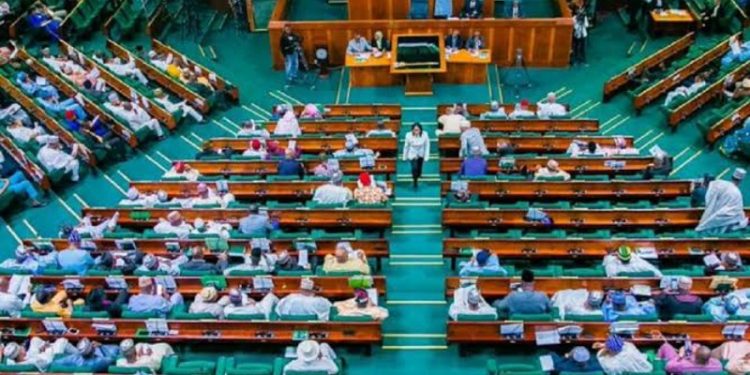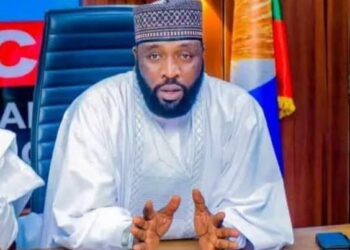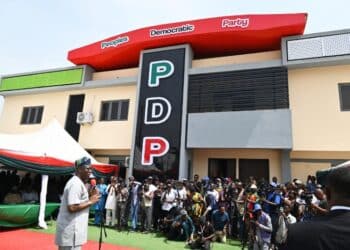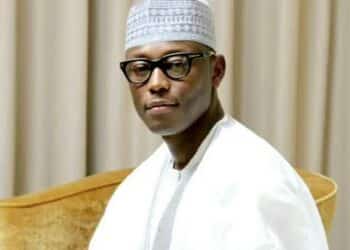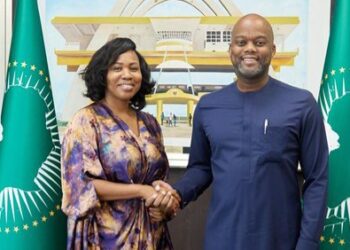On Tuesday, the House of Representatives rejected a constitutional amendment bill seeking to rotate the president’s and vice president’s offices among the country’s six geopolitical zones.
The lawmakers also rejected six other constitutional alteration bills listed in the order paper for consideration.
However, they resolved to bring back the bills and consider them on Wednesday on their individual merit.
At the commencement of the debate, the lawmakers set aside the House standing rules to allow them take the constitutional alteration bills simultaneously, and allowed members to choose any of the seven bills listed on which they wish to debate on.
However, most members chose the bill seeking to rotate the president’s and vice president’s offices among the six geopolitical zones, with several members opposing the idea and warning against setting a dangerous precedent.
Deputy Minority Leader Aliyu Madaki led the opposition to the bill, saying that the issues the bill intends to cure have been addressed by the Federal Character Commission. He warned that the rotation issue should not be included in the constitution, but allowed to remain the way it is.
Madaki argued that the existing political parties already have mechanism to ensure fair representation in the sharing of offices at every given electoral period.
Sada Soli (APC, Katsina) described the proposed alteration as ingenious but wondered whether it would affect quality.
He stressed that adopting the rotation principle would not be in the country’s interest, as it would promote regional and ethnic rivalry among the country’s various zones.
In his contribution, Shina Oyedeji (PDP, Oyo) said if the rotational principle is included in the constitution, every state and tribe in the various zones will begin another round of agitation for fairness and justice.
He noted that everybody in the country should be given equal opportunity to aspire to the president’s and vice president’s office, saying: “If you adopt zoning and it comes to the South West for example, which state will take the position? Is it Ogun or Oyo?
Soeaking, Bello El-Rufai (APC, Kaduna) wondered what would happen if the president died while in office, as happened when former President Umaru Yar’adua did.
He argued that adopting the provision would also infringe on the right of all Nigerians to contest for any office of their choice, adding that even if the rotation principle were allowed, there would always be mistrust among the people.
“Whatever you do in Nigeria, there will always be a cry of marginalisation. We should not engage in a dangerous precedent by putting it in the Constitution,” he said.
Olumide Osoba (APC, Ogun) said although the amendment might be unique, it will be out of place to force the political parties to choose where their candidates for elections will come from.
However, Minority Whip Ali Isa argued for allowing the six geopolitical zones to elect a president. The proposal should also extend to the states, with governorship seats rotating among the three senatorial zones.
He argued that all geopolitical zones in the country have well-qualified persons who can manage the affairs of the country and the West African subregion, adding that even the federal character principle provides that there should be fairness among all states of the country.
He commended the deputy speaker for acknowledging the need to allow fairness, saying, “In 2027, we should allow the presidency to go to the North East for the sake of fairness and allow all zones to produce the president.”
Also contributing, Clement Jimbo (APC, Akwa Ibom) said the bill seeks to cure the age-long injustice meted on the minority groups in the country, emphasising that a proviso be included in the Constitution that will ensure that all zones have a shot at the presidency.
The bill, however, failed to scale through second reading after a voice vote, which was preceded by a debate.
Other bills rejected are the bill for an Act to Alter the Constitution of the Federal Republic of Nigeria 1999 to remove from Independent National Electoral Commission the Powers of Registration and Regulation of political Parties in Nigeria and transfer same to the Office of the Registrar General of Political Parties; the bill for an Act to Alter the Constitution of the Federal Republic of Nigeria, Cap. C23, Laws of the Federation of Nigeria, 2004 to provide for Establishment, Independence, and Functions of the Office of the State Auditors-General for Local Governments and the Federal Capital Territory Area Councils, to Strengthen Fiscal Oversight, Promote Accountability and enhance Good Governance at the Grassroots; and a bill for an Act to Alter the Provisions of the Constitution of the Federal Republic of Nigeria, 1999 to Create Ughelli East Local Government Area in Delta.


